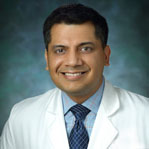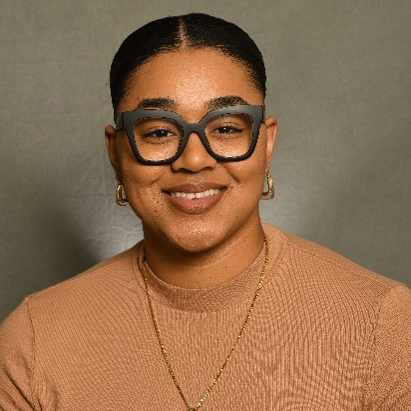The UAB fellowship in Interventional Pulmonology provides a rich and supportive educational environment where life-long learning skills are acquired and intellectual curiosity is treasured. Our program's primary mission is assisting you in achieving your professional goals while acquiring the skills, attitudes and knowledge to function as an Interventional Pulmonology physician in the setting of your choice.
Fellowship Experience
Our program provides superior training in a collaborative environment at UAB Hospital — a 1,200 bed inpatient —the eighth largest public hospital in the nation. Patients come from all over the Southeastern US to take advantage of our life-changing care, offering a large population and breadth of clinical learning opportunities. We approach medicine in a multi-disciplinary modality across a broad variety of conditions through core and elective rotations.
We accept applications through the online Interventional Pulmonary Fellowship Application System (IPFAS) located on the Association of Interventional Pulmonology Program Directors (AIPPD) website. UAB code #1007P49S0.
Clinical Training
The Interventional Pulmonology Fellowship at UAB is a 12-months long fellowship in which fellows are exposed to complex airway disease and perform high procedural volumes. Time is divided between outpatient procedures in the bronchoscopy suite, outpatient interventional pulmonary clinic, and inpatient interventional pulmonary and pleural disease consult service.Besides the wide range of interventional pulmonology procedures, IP fellows will have the opportunity to train with our thoracic and ENT surgeons. Two weeks of the fellowship are devoted to elective rotations with thoracic surgery, ENT, and/or chest radiology.
Our IP team works in close collaboration with our medical oncologists, radiation oncologists, thoracic surgeons, ENT surgeons, pathologists and radiologists which allows for well-rounded training for our IP fellows. Of all the ingredients that have allowed our program to be so successful, the most important is the high quality of the individuals we have been fortunate to have as faculty, fellows and staff. We are very happy that you have taken the time to study our program and hope you find the information available to be valuable. For more information about our IP program click here.
Interventional Pulmonology Fellowship Curriculum.
Fellows have opportunities to teach rotating pulmonary and critical care fellows in the bronchoscopy suites, during conferences, and during the inpatient consult service.
Didactics includes faculty-delivered lectures, lecture series provided by the AIPPD, case discussions and presentations, and required reading assignments found at our programs online drive. There are several conferences that the IP fellow is expected to attend, including:
* The weekly Interventional Pulmonology Conference covering core topics, including case discussions, M&M, and journal club sessions, with enriching contributions from Vanderbilt University IP program attendees and occasional experts from other departments at UAB and VUMC.
* The weekly summer lecture series in collaboration with Johns Hopkins University, University of North Carolina, University of Maryland, and Vanderbilt University
* The weekly Thoracic Oncology Tumor Board, led by the IP team, addresses clinical questions on thoracic malignancies through multidisciplinary discussions and live radiology and pathology image reviews.
* The bi-weekly Complex Airway Disease Conference involves specialists from various fields including ENT, thoracic surgery, and IP team, to develop care plans for patients with complex airway diseases.
* IP fellows are encouraged to attend:
o Thoracic Surgery Conference, which complements the IP conference curriculum.
o Pulmonary and Medical Grand rounds.
o The annual AABIP bootcamp, AABIP mid-year conference, and AIPPD career development conference
All conferences are open to faculty, fellows, residents, students and staff, and are held virtually via Zoom. Content and materials for this curriculum can be found at the program's online drive.
Research Opportunities
UAB Interventional Pulmonology fellows are expected to be involved in mentored projects and scholarly pursuits during their training, regardless of their career plans. Fellows must complete mentored project requirements to be eligible to sit for board examination and to graduate.
Fellows are required to complete a research project (or a mentored Quality Improvement project) and will be expected to present their work in the form of an abstract at a national meeting. Alternatively, a published review paper in the area of investigation would fulfill the requirement for scholarly activities. During their training, fellows may pursue a masters level degree to support their career plans.
Let's get acquainted
It's not just what you learn. It's also about the people you learn with. Our program leaders are dedicated to developing the potential of every talented trainee.
Meet our people
Application Procedure
Our Fellowship Application requirements include the following:
- Our fellowship application requirements include the following:
- Online application through Interventional Pulmonology Fellowship Application System (IPFAS) located on the Association of Interventional Pulmonology Program Directors (AIPPD) website.
- Curriculum vitae
- Personal statement
- Three letters of recommendation, one of which must be from your Program Director
- Copies of all USMLE score reports
- A summarized, HIPPA-compliant procedure log listing the type of procedure and number of procedures performed. Please do not provide a list of every individual procedure performed. - All fellowship appointments are arranged by the National Residency Matching Program (NRMP) for Fellowships in Pulmonary Diseases, following the Matching Program schedule. All Interventional Pulmonology Fellowship candidates must participate in the NRMP program.
- Applications are accepted starting July 1st.
- The deadline for submitting applications is August 31st.
- Applicants considered for a position will be invited to interview.
- Interviews are usually conducted September through early October each year.
- The academic year begins July 1st and ends June 30th.
Want to learn more? Start a conversation with us.
 I'm always ready to discuss our individualized approach to train future clinicians and researchers in the engaging practice of interventional pulmonology.
I'm always ready to discuss our individualized approach to train future clinicians and researchers in the engaging practice of interventional pulmonology.
Aline N. Zouk, M.D., Interventional Pulmonology Fellowship Program Director
Send an Email
 I'd be delighted to talk with you about the many exciting possibilities that await you at UAB and Birmingham. Contact me for more details about
I'd be delighted to talk with you about the many exciting possibilities that await you at UAB and Birmingham. Contact me for more details about
your fellowship.
Hitesh Batra, M.D., Associate Interventional Pulmonology Fellowship Program Director
Send an Email
 I'd be delighted to talk with you about the many exciting possibilities that await you at UAB and Birmingham. Contact me for more details about your fellowship.
I'd be delighted to talk with you about the many exciting possibilities that await you at UAB and Birmingham. Contact me for more details about your fellowship.
Brittney Snow, MS, Fellowship Program Administrator
Send an Email
 Please reach out for more details about your fellowship.
Please reach out for more details about your fellowship.
Kayla Anderson, Fellowship Program Coordinator
Send an Email